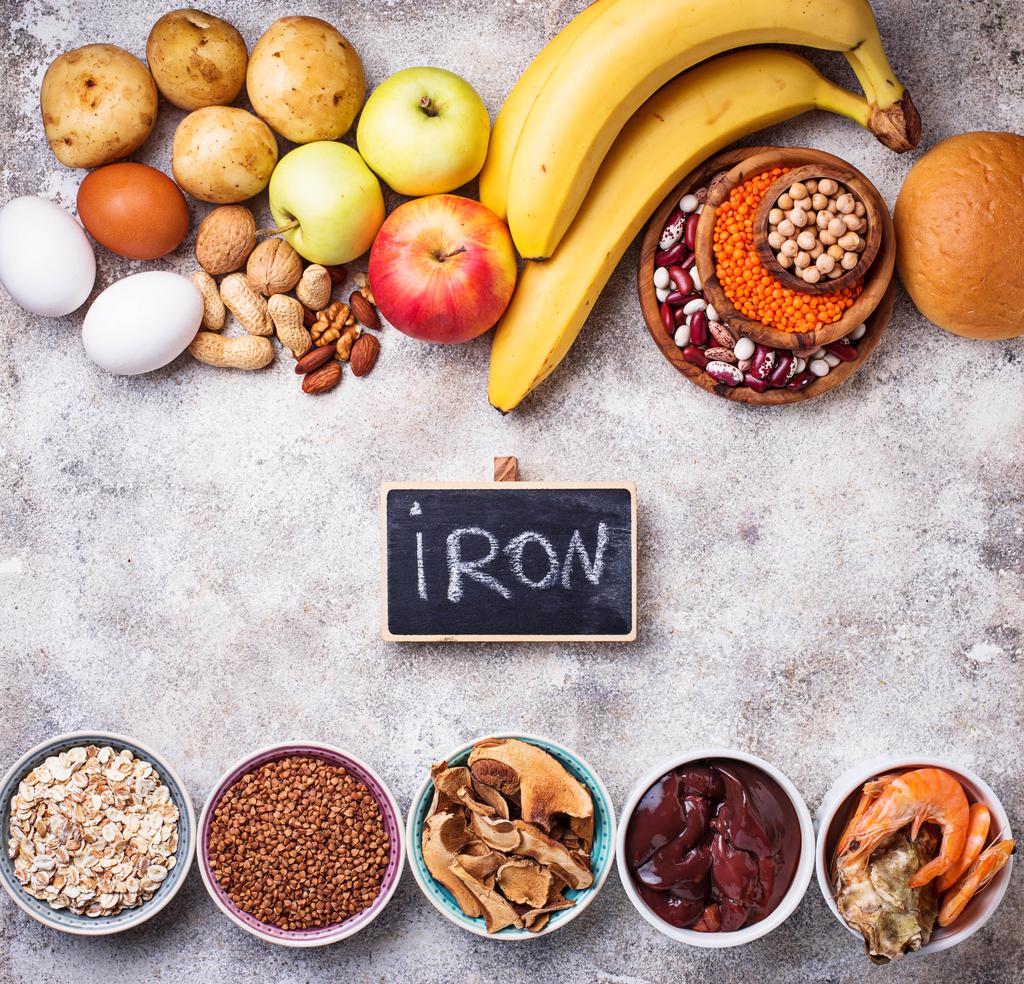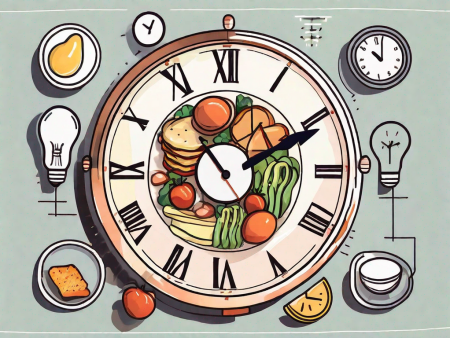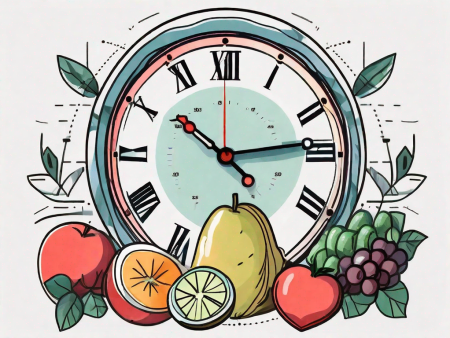Discover the fascinating relationship between iron and metabolism in this informative article.
How Does Iron Affect Metabolism?
Iron plays a crucial role in our metabolism, affecting various processes that keep our bodies running smoothly. From energy production to DNA synthesis, iron is a key player in maintaining a healthy and efficient system. In this article, we will explore the different ways iron impacts metabolism and uncover the importance of maintaining a proper iron balance.

Understanding the Role of Iron in the Body
Iron is an essential mineral that our bodies need for proper function. One of the most vital connections iron has is with hemoglobin, the protein responsible for transporting oxygen to all our cells. Without iron, our bodies wouldn’t be able to produce enough hemoglobin, leading to a lack of oxygen reaching our tissues and organs.
But iron’s influence goes beyond hemoglobin. It also affects cellular function, playing a crucial role in enzymatic reactions that take place within our cells. These reactions are responsible for breaking down nutrients, converting them into energy, and carrying out various other metabolic processes.
Iron is not only involved in oxygen transport and cellular function, but it also plays a significant role in the immune system. Iron is necessary for the production of white blood cells, which are essential for fighting off infections and diseases. Without sufficient iron levels, the immune system may become compromised, making individuals more susceptible to illnesses.
In addition to its role in the immune system, iron is also involved in cognitive function. Iron is necessary for the production of neurotransmitters, which are chemical messengers that allow communication between nerve cells. These neurotransmitters are crucial for various cognitive processes, including memory, attention, and learning. Insufficient iron levels can lead to cognitive impairments and difficulties in concentration and memory retention.
Furthermore, iron is essential for maintaining healthy hair, skin, and nails. Iron deficiency can result in brittle nails, dry and dull hair, and pale skin. Adequate iron levels are necessary for the production of collagen, a protein that provides structure and elasticity to the skin, hair, and nails.
Iron is found in a variety of food sources, including red meat, poultry, fish, legumes, and leafy green vegetables. However, not all iron is easily absorbed by the body. The absorption of iron can be influenced by other dietary factors, such as the presence of vitamin C, which enhances iron absorption, and certain compounds, like tannins found in tea and coffee, which can inhibit iron absorption.
It is important to note that while iron is crucial for our health, excessive iron levels can also be harmful. Iron overload can lead to a condition called hemochromatosis, where iron accumulates in the body’s organs and tissues, causing damage. Hemochromatosis can result from genetic factors or excessive iron supplementation.
In conclusion, iron plays a multifaceted role in the body, from oxygen transport and cellular function to immune system support and cognitive function. Maintaining adequate iron levels through a balanced diet is essential for overall health and well-being.
The Metabolic Pathways Influenced by Iron
Iron’s impact on metabolism extends to the very core of our cellular processes, affecting energy production and DNA synthesis.
Iron, an essential mineral, plays a crucial role in maintaining the balance of our body’s metabolic pathways. Let’s delve deeper into the fascinating ways in which iron influences our cellular functions.
Iron and Energy Production
Iron is not only a vital component of our blood but also a key player in energy production. It is involved in the electron transport chain, a series of reactions that occur within the mitochondria to generate energy. Within this intricate process, iron acts as an electron carrier, accepting and donating electrons to facilitate the production of ATP, the energy currency of our cells.
Imagine a bustling factory where iron molecules shuttle electrons along a conveyor belt, powering the production of ATP molecules. Without sufficient iron, this energy production process is compromised, leading to lethargy and fatigue. It’s like a power outage in our cells, leaving us drained and unable to perform at our best.
Iron’s Role in DNA Synthesis
Iron’s influence on our metabolism doesn’t stop at energy production. It also plays a significant role in DNA synthesis, a fundamental process that ensures the growth and repair of our cells.
Within our bodies, iron contributes to the formation of new cells by supporting the proper functioning of DNA polymerases. These enzymes are responsible for copying and replicating our genetic material, allowing for the creation of identical DNA strands. Without enough iron, this intricate process is hindered, affecting cell growth and repair.
Picture a construction site where iron acts as the scaffolding, providing the necessary support for the construction workers (DNA polymerases) to build new cells. Without sufficient iron, this scaffolding weakens, impeding the construction process and compromising our body’s ability to regenerate and heal.
It’s fascinating to consider how a single mineral like iron can have such a profound impact on our metabolic pathways. From the generation of energy to the replication of our genetic material, iron’s influence is truly remarkable.
Iron Deficiency and Its Effects on Metabolism
Iron deficiency, known as anemia, can have profound effects on our metabolism, impacting both short-term and long-term health.
Iron is an essential mineral that plays a crucial role in various metabolic processes in the body. It is a key component of hemoglobin, the protein in red blood cells that carries oxygen from the lungs to the rest of the body. Without sufficient iron, our body’s ability to transport oxygen is compromised, leading to a cascade of effects on our metabolism.
Symptoms of Iron Deficiency
Iron deficiency can manifest with a range of symptoms, such as fatigue, weakness, pale skin, brittle nails, and shortness of breath. These symptoms arise due to the lack of oxygen being delivered to our tissues and organs, significantly impairing their function.
When our cells don’t receive enough oxygen, they struggle to produce energy efficiently. This can result in feelings of constant fatigue and weakness, making even simple tasks feel exhausting. Additionally, the lack of oxygen can affect the appearance of our skin, causing it to become pale and dull.
Brittle nails are another common symptom of iron deficiency. Iron is necessary for the production of collagen, a protein that provides strength and structure to our nails. Without enough iron, our nails can become weak and prone to breaking.
Shortness of breath is a result of the body’s attempt to compensate for the lack of oxygen. When oxygen levels are low, our heart and lungs work harder to try and deliver more oxygen to the tissues. This increased workload can leave us feeling breathless, especially during physical activity.
Long-term Metabolic Consequences of Iron Deficiency
If left untreated, iron deficiency can have long-term consequences on metabolism. It can lead to a decreased metabolic rate, affecting the body’s ability to burn calories efficiently.
Iron is involved in the production of thyroid hormones, which play a crucial role in regulating our metabolism. When iron levels are low, the production of thyroid hormones may be disrupted, leading to a slower metabolic rate. This can make it more difficult to maintain a healthy weight and may contribute to weight gain over time.
Furthermore, iron deficiency can compromise the immune system, making us more susceptible to infections and impairing overall health. Iron is necessary for the proper functioning of immune cells, such as neutrophils and lymphocytes, which help defend the body against pathogens. Without sufficient iron, our immune system becomes weakened, leaving us vulnerable to various illnesses.
In addition to the metabolic consequences, iron deficiency can also impact cognitive function and mood. The brain requires a constant supply of oxygen to function optimally. When iron levels are low, the brain may not receive enough oxygen, leading to difficulties in concentration, memory problems, and even mood disturbances.
In conclusion, iron deficiency has far-reaching effects on our metabolism and overall health. It is essential to ensure an adequate intake of iron through a balanced diet or supplementation to prevent these detrimental consequences. If you suspect you may have iron deficiency, it is important to consult with a healthcare professional for proper diagnosis and treatment.
Iron Overload and Metabolic Disorders
Iron is an essential mineral that plays a crucial role in various bodily functions. While iron deficiency presents its own set of challenges, excessive iron intake can also lead to metabolic disorders.
When it comes to iron metabolism, balance is key. Our bodies have a remarkable ability to regulate iron absorption, ensuring that we get enough iron to meet our needs without overloading our system. However, certain genetic disorders can disrupt this delicate balance, leading to iron overload and metabolic complications.
Understanding Hemochromatosis
Hemochromatosis is one such genetic disorder characterized by excessive iron absorption from the diet. This condition occurs when the body absorbs more iron than it needs, leading to iron overload in various organs and tissues.
Iron overload can have serious consequences for our health. One of the most commonly affected organs is the liver. Excess iron can accumulate in the liver, causing damage and impairing its normal function. Over time, this can lead to conditions such as cirrhosis and liver cancer.
In addition to liver damage, hemochromatosis can also cause joint pain and fatigue. The excess iron deposits in the joints, leading to inflammation and discomfort. Fatigue is a common symptom as the body’s metabolic processes are disrupted by the iron overload.
Metabolically, hemochromatosis can disrupt the balance of enzymes involved in cellular processes. Iron is an essential component of many enzymes that play a crucial role in metabolic pathways. When there is an excess of iron, these enzymes can become overactive, leading to imbalances in metabolic function.
Furthermore, iron overload can also affect the production and regulation of hormones, which play a vital role in metabolic regulation. This disruption can further contribute to metabolic dysfunction and complications associated with hemochromatosis.
Metabolic Risks of Excessive Iron Intake
While hemochromatosis is a genetic disorder, it is important to note that excessive iron intake, even in individuals without this condition, can be detrimental to our metabolism.
When we consume too much iron, our bodies may struggle to process and utilize it effectively. This can lead to oxidative stress, a condition characterized by an imbalance between the production of harmful free radicals and the body’s ability to neutralize them with antioxidants.
Oxidative stress can have damaging effects on cells and tissues throughout the body. It can contribute to the development of chronic diseases such as cardiovascular disease, diabetes, and certain types of cancer. Additionally, oxidative stress can accelerate the aging process and impair overall metabolic function.
Therefore, it is crucial to strike a balance with iron intake. While iron is necessary for our health, excessive intake can pose risks. It is important to consult with healthcare professionals to determine the appropriate amount of iron needed for optimal metabolic function and to avoid the complications associated with iron overload.
Balancing Iron Intake for Optimal Metabolism
So, how can we maintain a balance when it comes to iron intake?

Recommended Daily Iron Intake
The recommended daily iron intake varies depending on age and gender. For adult men and postmenopausal women, the recommendation is 8 milligrams per day. However, women of childbearing age require more iron, with a recommendation of 18 milligrams per day. It is crucial to consult with a healthcare professional to determine the appropriate intake for your specific needs.
Iron-Rich Foods for a Healthy Metabolism
One way to ensure a healthy iron intake is by incorporating iron-rich foods into your diet. Lean meats, poultry, fish, beans, lentils, spinach, and fortified cereals are excellent sources of iron. Pairing iron-rich foods with sources of vitamin C, such as citrus fruits or bell peppers, can enhance iron absorption for maximum benefit.
Iron is more than just a metallic mineral; it is a metabolic powerhouse that affects various pathways vital for our overall health. By understanding the role of iron in the body, recognizing the consequences of iron deficiency, and maintaining a balanced iron intake, we can optimize our metabolism and support a healthy and vibrant life.







